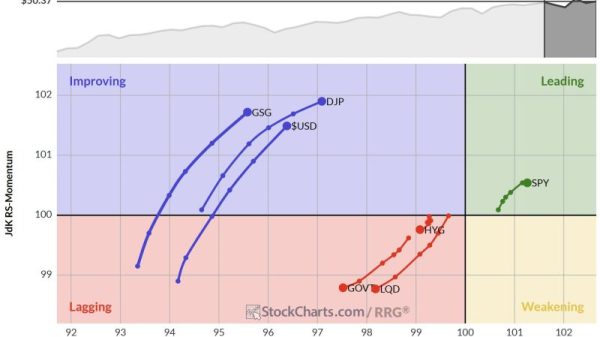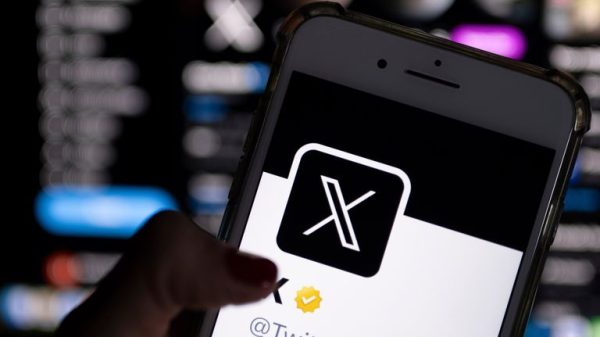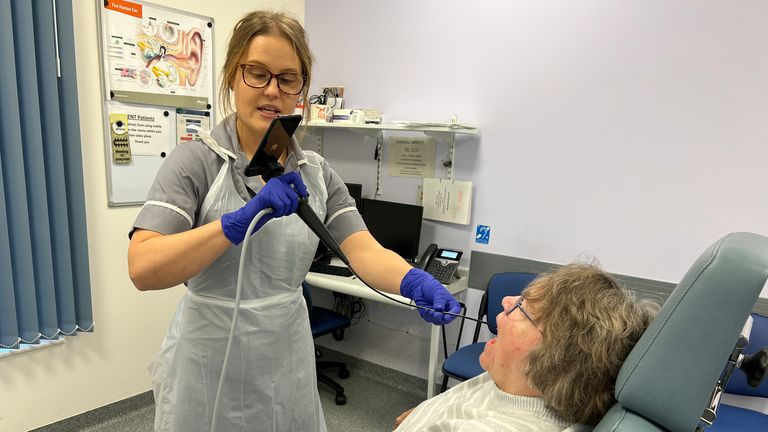The NHS has begun trialling a new iPhone adapter which can check whether someone has throat cancer.
It is hoped the device will allow thousands of patients to be given the all-clear from the disease within hours – rather than days or weeks – as well as helping to detect cases early.
People suspected of having throat cancer are usually given an endoscopy, which involves a long, thin tube with a camera inside being passed through their mouth or nose to look inside their body.
The endoscope-i adapter, which can be attached to one of Apple’s smart phones, includes a 32mm lens endoscope eyepiece and an accompanying app.
It allows nurses to capture endoscopy footage in high definition before sharing it with specialists who can report back to patients directly.
The NHS said an initial pilot by the North Midlands University Hospitals NHS Trust had helped reassure more than 1,800 low-risk patients that they did not have throat cancer, with those tested receiving their results “within 23 hours”.
The gadget also helped detect cancer in around one in a hundred of those tested.
Officials said no cancers were missed during the trial.
A spokesperson said it could be used more widely across the country “in diagnostic centres and community settings”, reducing the need for patients to go to hospitals, freeing up resources and reducing waiting times.
Dr Cally Palmer, national cancer director at NHS England, said: “Detecting cancer early is key to providing treatment as soon as possible to help give patients the best chance of survival.
“For those needing tests to investigate suspected cancer, it can be an extremely worrying time and being able to rule out the disease sooner can make a huge difference for people and their families.”
There are around 250,000 urgent referrals for suspected head and neck cancer each year, according to NHS England.
However, only 5% of these are diagnosed with the disease.
Janet Hennessy, 76, from Stoke-on-Trent, said she thought the device was “absolutely brilliant” after she took part in the trial.
She added: “When you have a procedure done and you’ve got to go back home and wait two or three weeks, even if you think there’s nothing there, you’re still thinking about it and it worries you and your family.”
Meanwhile, Kyle Jones, 31, was diagnosed using the gadget after being referred to Royal Stoke Hospital by his GP.
He said: “I remember being confused at the time due to my only symptom being a hoarse voice. It was like I had been singing too much at a gig the night before.”
Mr Jones said it was a “massive shock” to be informed he had cancer but was reassured by medics. He had his voicebox removed to prevent the disease from spreading further.
He added: “I’m scared to even think where I’d be or what could have happened without this device.
“With how fast that my cancer developed after the first appointment to the stage where I needed a big laryngectomy surgery it makes me so grateful that it was picked up and in time and I believe that has saved my life.”


























